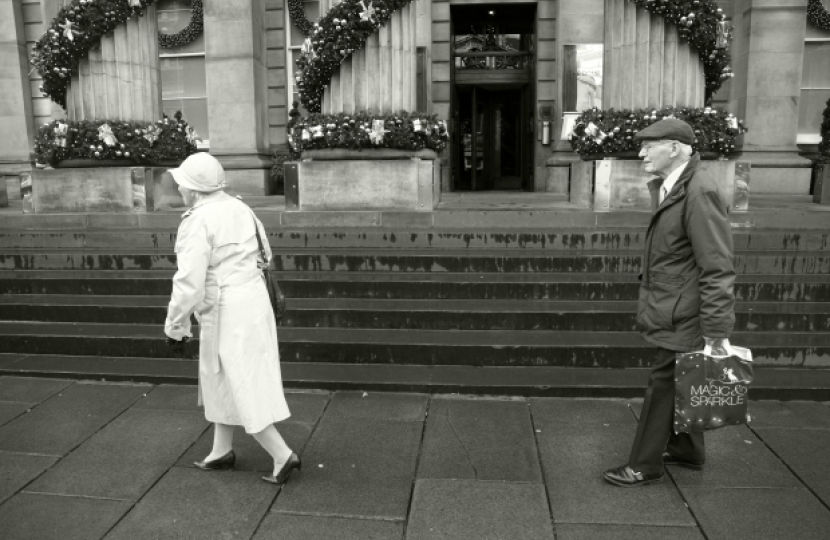
The pandemic has been a difficult time for us all, but for older people the past two years have been incredibly tough.
Cut off from family and friends, for many it has been the loneliest period of their lives. A recent survey conducted by Age Cymru about older people’s experience of lockdown reports that 87% of respondents found not seeing family and friends an issue, an increase from 78% during the first lockdown. Those finding loneliness (37%), the impact on emotional health (51%) and impact in physical health (35%) a challenge also all increased.
Many older people have lost friends and family during the pandemic, people who are often not only loved ones but support networks.
Throughout the pandemic Age Alliance Wales members have worked together to share information about the impact of the pandemic on older people.
With the roll out of vaccines and the relaxing of restrictions, their concerns have inevitably switched to ensuring older people are able to access the help, care and support they need through COVID-19 recovery.
The landscape for support continues to look very different, as many services are still not able to operate as they did pre-COVID-19 for a whole host of reasons; funding mechanisms may have changed, volunteer availability may be different.
Also, many older people have lost confidence during the pandemic and may be reluctant to leave the home, visit community venues and shops, or use public transport.
The Royal National Institute for the Blind research has found that two thirds of blind and partially sighted people (66%) feel as though their confidence and independence had been eroded due to lockdown measures and many are suffering increased anxiety and stress as they navigate a changing world just to access essential services like supermarkets and eye clinic appointments.
In Age Alliance Wales’ latest report on ‘Covid 19 Recovery’ it states that health worries are beginning to be overtaken by fears for the future and ambiguity about what comes next. For many older people, normality feels difficult to imagine.
The report also states that the mental health of our older people must be prioritised going forward, and I couldn’t agree more.
One way of helping to reduce their anxiety is to ensure they can access the health care services they need.
Access to GP surgeries was a large issue prior to the pandemic, and for many older people, getting an appointment is still a major problem. Meanwhile, older people have shared concerns about access to care and carers assessments.
The Age Alliance report has also highlighted the impact of the pandemic on unpaid carers and the need to ensure they are fully supported going forward. We know that many older people are carers, and as such have had experiences and stresses during the pandemic which may differ from those who are not.
Carers Wales research showed that the number of carers in Wales rose from 487,000 to 683,000 in a matter of weeks at the start of the pandemic, this was at the same time local authority information and support services were cut back as teams were redeployed to other areas of work.
Data provided by Alzheimer’s Society Cymru shows that 92 million extra hours were spent by family and friends caring for loved ones with dementia. Additionally, 76% of carers reported their caring responsibilities had increased due to a worsening in the dementia symptoms of the person they cared for and 73% of carers said that their caring responsibilities had increased during lockdown. 95% of carers reported a negative impact on the mental and physical health.
With older people making up one-third of the population of Wales, it is vital that as we recover from the pandemic we meet all of their needs and provide them with hope for the future. For all they have contributed to society, they deserve nothing less.
